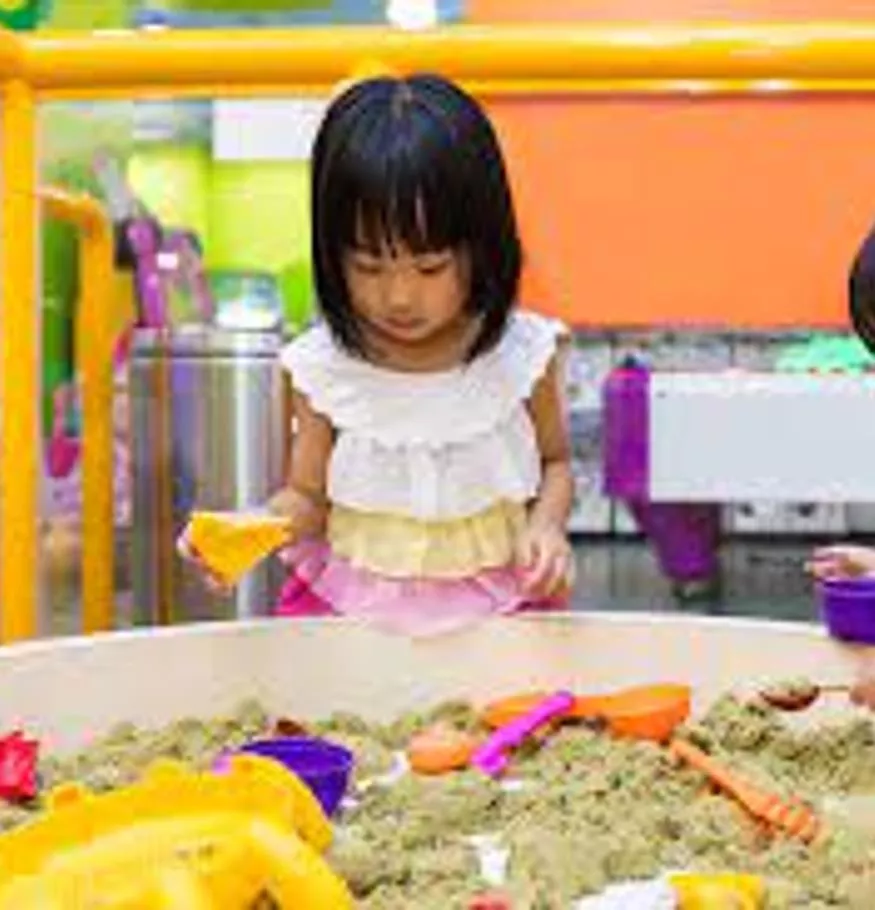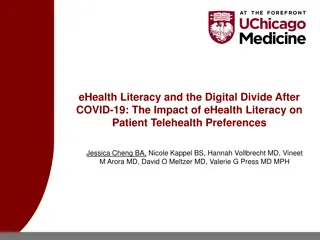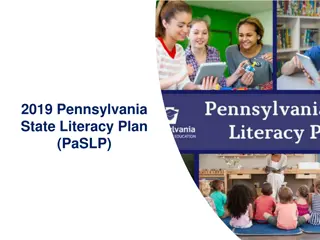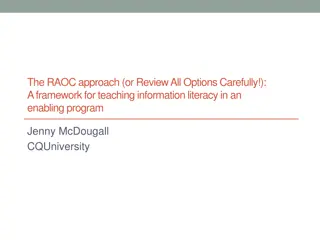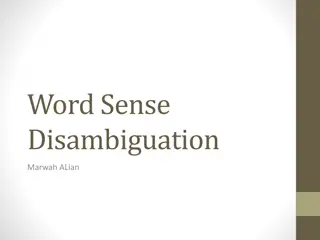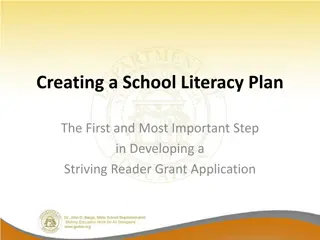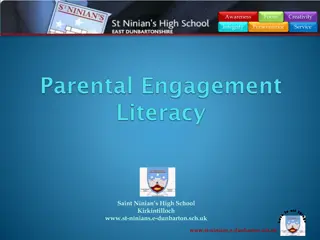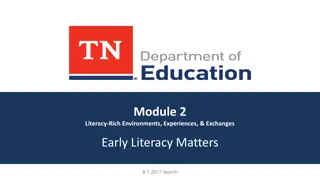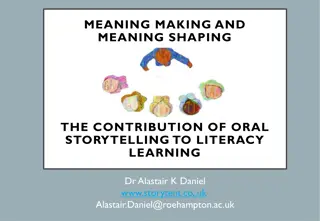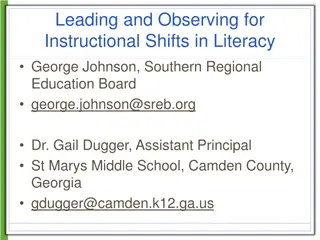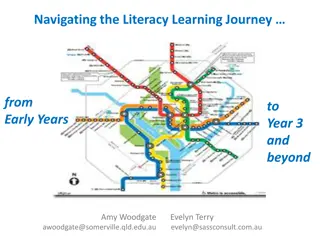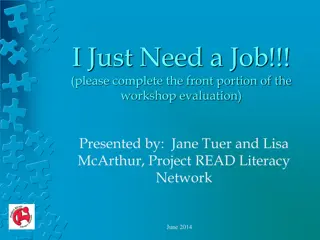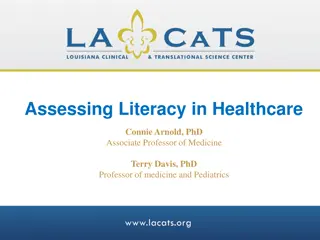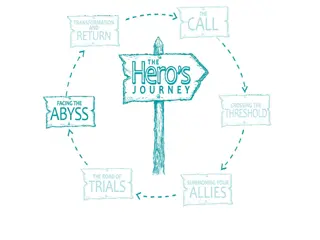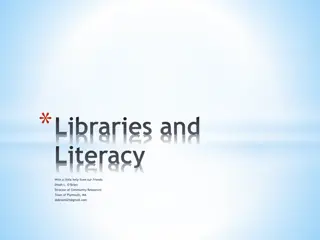Literacy Beyond Traditional Approaches
Explore the expanded concept of literacy beyond traditional school methods like reading and writing, delving into emotional, social, and physical aspects. Discover how everyday experiences contribute to literacy development and its connection to language, culture, and background. Follow the story of Ted, a struggling reader, and the efforts of a specialist teacher to enhance his literacy skills. Consider literacy through various activities like storytelling, singing, and cultural teachings to broaden understanding.
Uploaded on Oct 10, 2024 | 0 Views
Download Presentation

Please find below an Image/Link to download the presentation.
The content on the website is provided AS IS for your information and personal use only. It may not be sold, licensed, or shared on other websites without obtaining consent from the author.If you encounter any issues during the download, it is possible that the publisher has removed the file from their server.
You are allowed to download the files provided on this website for personal or commercial use, subject to the condition that they are used lawfully. All files are the property of their respective owners.
The content on the website is provided AS IS for your information and personal use only. It may not be sold, licensed, or shared on other websites without obtaining consent from the author.
E N D
Presentation Transcript
This unit will help us 1 2 3 4 Identify the role of schooled approaches, e.g. reading, writing and vocabulary in common understandings of literacy Reimagine literacy to include everyday, taken for granted spaces Explore how literacy can be understood in emotional, social and physical ways Understand the relationship between language, literacy, culture and background
This weeks workshop
Hall, M., Levy, R. and Preece, J., 2018. No-one would sleep if we didnt have books! : Understanding shared reading as family practice and family display. Journal of Early Childhood Research, 16(4), pp.363-377. Levy, R., 2011. Young Children Reading: At home and at school. Sage Publications chapter 6 Hackett A. More than human literacy The role of the body in literacy
Ted: a tale of an unmotivated and struggling reader Dr Gillian Smith
Ted and all his deficits: Low reading motivation Poor phonics knowledge and phonological awareness Insufficient parental support General lack of ability Immaturity (so far he has not developed a poor attitude or behaviour issues but this may just be a matter of time!)
My role as a specialist teacher As a Specialist Dyslexia Teacher, I was the rescuer , come to save Ted from all his deficits using my advanced levels of knowledge and skills, and a little of Mrs Smith s magic to boost his confidence. My plan was to Improve his phonological awareness and phonics knowledge Increase his reading motivation Make the lessons a bit more enjoyable
Teds literacy experiences aged three Pahl s work on home literacies would suggest that Ted had already had a rich diet of literacy experiences. Taking a sociocultural stance on literacies would suggest that all these experiences were forms of literacy activities, as well as having stories read to him: Watching stories on children s tele or films Singing nursery rhymes, children s songs or popular songs Making up pretend games with friends or siblings Recounting the events of a day out or special occasion Learning about religious or cultural stories or teachings
Engaging in early literacy activities EYFS literacy learning involves combining letter knowledge and pencil control to start writing with a range of play activities, often based on familiar contexts, and accessible for all, for example: Pencils and paper in role play areas to write lists or notes Using sensory play to learn letters, by burying them in the sand tray, or fishing them out of water Acting out stories from books, with props or toys Using mark making as a way to communicate with others
Our own experiences of literacies as adults Reading for pleasure (fiction or non-fiction) Watching plays, films, soap operas, documentaries Writing to communicate with others, both formally and informally Writing to organise ourselves Religious or spiritual practices or learning Social literacy activities like book clubs Connecting with our communities or the wider world
The narrowing of literacy activities for those who struggle A greater emphasis on the mechanical decoding skills, less on enjoyment of literacy learning Reduced levels of choice in reading material, often from texts aimed at younger children than themselves Differentiated literacy tasks that can reduce autonomy Resources that speak to peers of literacy difficulties, and which can be seen as leading to reduced social standing amongst peers
What I learnt about my practice: Learning through games is not just fun, but also increases focus and gives a sense of autonomy Working with individual learners own interests and experiences not only adds interest but makes them feel seen as a person Choosing or making texts that are meaningful to the reader helps to integrate all the separate reading skills as well as being enjoyable Matching the social context of literacy support to a learner s preferences reduces stress levels and so boosts concentration Concrete evidence of progress with skills is an antidote to the negative experiences of struggling
Removing barriers to reading motivation The desire to communicate through written and spoken word will be there to tap into if the levels of literacy skill required are matched to the learner s current ones, and the activity is meaningful The enjoyment of literacy activities will still be there despite struggling with reading skills, but it might be more on home-based literacies to start with A learner becomes confident in their ability to learn when they have evidence of their successes Resources can contribute to, or detract from, reading motivation more than is often realised
Reflection on pre-preparation Sam is 40 and has a four-year-old, Harper. Sam remembers low marks on spelling tests and feeling nervous when reading Of Mice and Men out loud at school. Upon beginning a degree in Criminology, a tutor recommended Sam undergo a dyslexia assessment, and at the age of 19, was diagnosed. Sam s partner Alex, reads with Harper at bedtime sometimes but isn t sure they are getting much out of it. Considering the above case study, answer the following questions What support might Sam need? How might you as a practitioner be equipped to do this? What might you need to consider? What support might Sam need? Principles of the approach Sensitive working Practical solutions : E.g. Story sacks How might you as a practitioner be equipped to do this? What might you need to consider?





